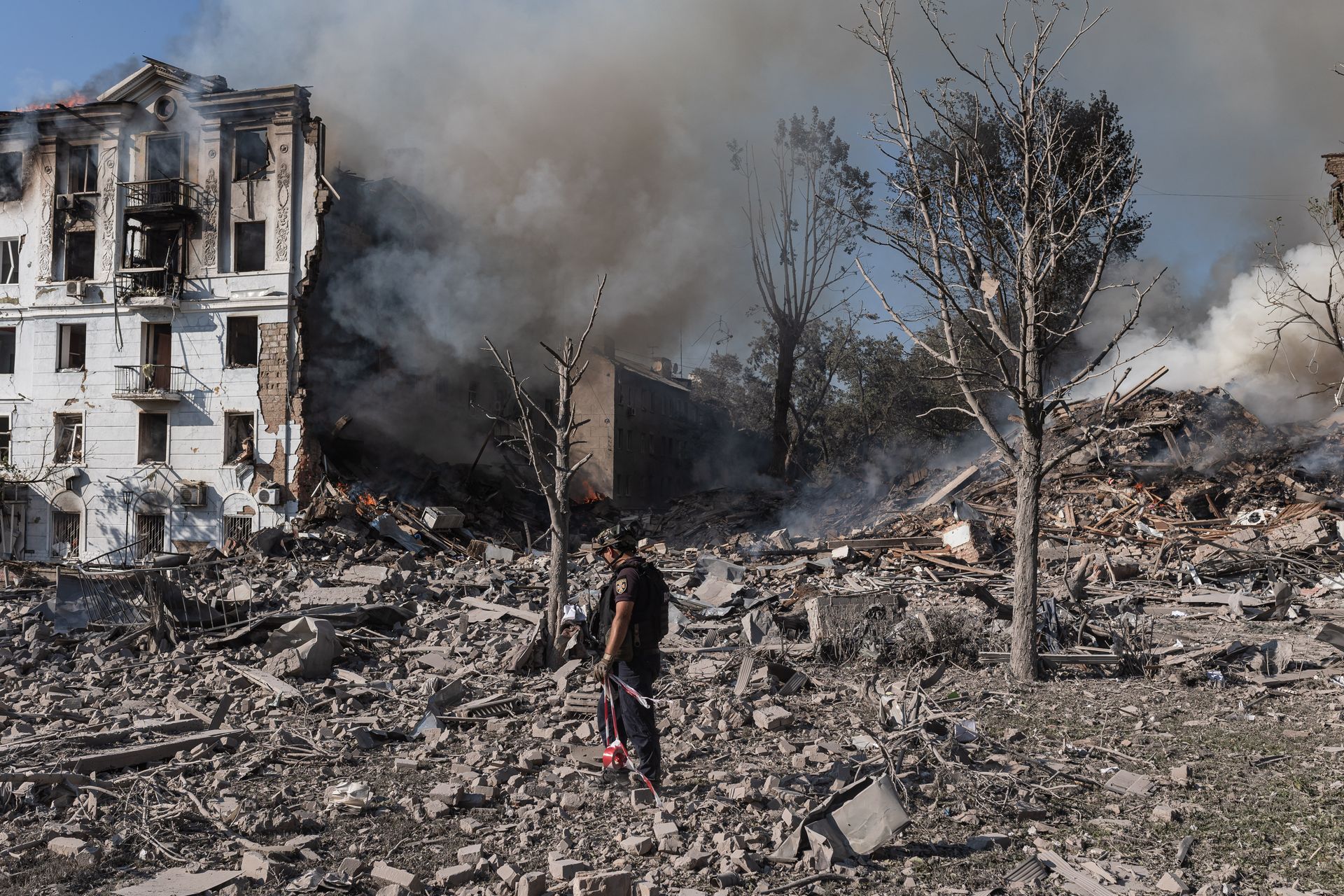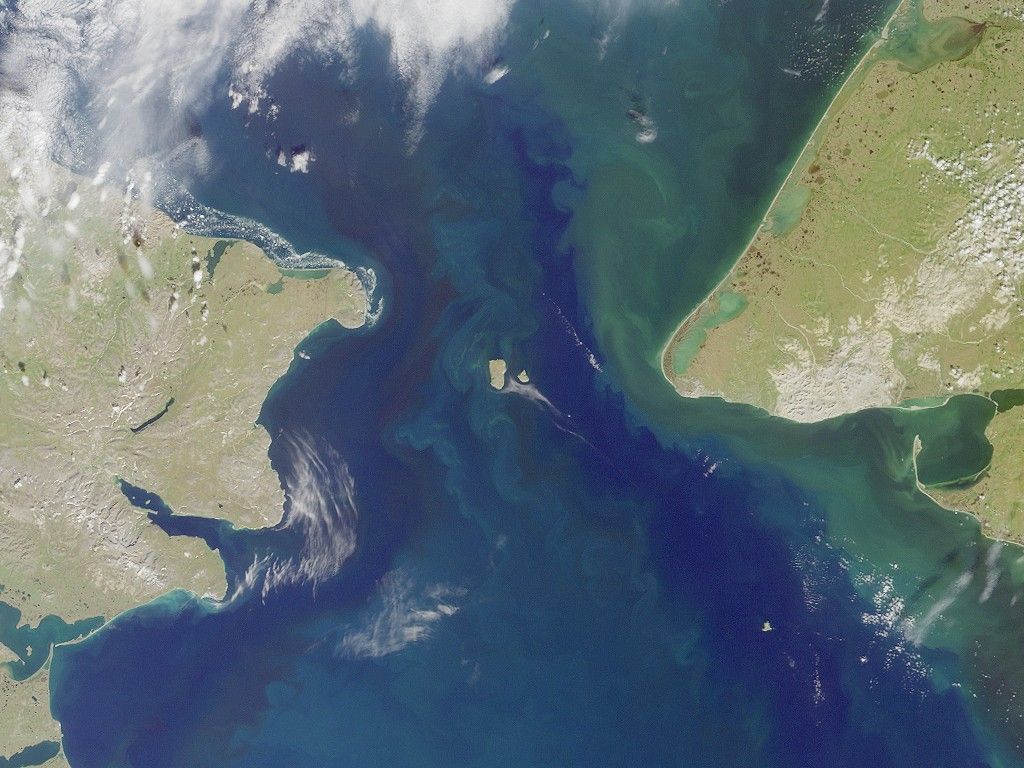From 'war criminal' to US guest — Trump invites Putin out of isolation

Traditional Russian wooden nesting dolls, Matryoshka dolls, depicting Russian President Vladimir Putin and U.S. President Donald Trump are displayed for sale at a gift shop on the touristic Arbat Street in downtown Moscow on Aug.13, 2025. (Alexander Nemenov/AFP via Getty Images)
Russian President Vladimir Putin's first trip to the United States in a decade signals a break from the diplomatic isolation that followed his 2022 full-scale invasion of Ukraine.
The visit comes as U.S. President Donald Trump pushes for a ceasefire deal — but experts warn it could legitimize Putin on the global stage without securing concessions.
Exiled Russian opposition figure Dmitry Gudkov called the planned meeting a "breakthrough" for the Kremlin leader.
"This meeting takes him out of isolation and essentially makes him a legitimate player in any international dialogue," said Gudkov, a former member of the Russian parliament.
"Just yesterday, he was still a war criminal no one intended to engage with, and now Trump is inviting him personally to America, and treating him as one of the parties to the conflict — not as the aggressor."
From isolation to outreach
After Moscow launched its full-scale invasion, Putin limited travel largely to close allies and regional partners, Iran, China, and North Korea, avoiding Western capitals entirely.
That began to shift after Trump took office on Jan. 20, 2025. Within weeks, the leaders held their first phone call, breaking the communication freeze imposed during Joe Biden's presidency.
Since then, Trump and Putin have spoken over the phone six times, while U.S. envoys have traveled to Moscow for negotiations. One of the earlier tracks involved Trump's Special Envoy Steve Witkoff meeting with Kirill Dmitriev, the head of Russia's sovereign wealth fund.
Analysts see those meetings as an early signal that Washington was willing to explore business opportunities alongside political negotiations.
American studies expert Alexandra Filippenko said the shift reflects Trump's priorities.
"What matters most is trade — trade that benefits the United States. Absolute realism," she said. "You can deal with anyone if it's profitable. That's it."

"Trump doesn't need a strong, powerful Putin, absolutely not. But there's also no need to corner him if you can get the maximum out of him."
Russian political scientist Fedor Krasheninnikov described Trump's style as transactional.
"In his business worldview, there's only a deal with Putin that needs to be made," he said.
"If for this deal he has to compliment him, pat him on the shoulder, publicly say what a great person he is — even if it horrifies others — it's because he wants to close the deal."
Negative impact
The experts warn that the U.S. president's strategy could have negative consequences. Gudkov argued that a high-profile meeting with Trump would send a powerful message to Moscow's political and business class.
"If there were any possibility of an elite split or a regime change, meetings like these would only slow that process down," he said.
"They signal to the elites that Putin is right and his approach is acceptable."
Filippenko believes that Trump's approach is driven by his desire to "make a deal" with Putin, which would be profitable for the U.S. and not the international community.
"For the U.S., the result is trade with Ukraine, trade with Europe, and trade with Russia," she said. "Securing the most favorable contracts in Russia — that's the result."
Myth of total isolation
Even if Putin appears to be breaking out of isolation, the notion that he was completely cut off is misleading, as Russia maintained strong relationships with China, India, and other non-Western nations, Krasheninnikov said.
"The myth of isolation was only for Western leaders," he said, adding that even leaders such as Hungarian Prime Minister Viktor Orban have traveled to Russia.

Orban visited Moscow on July 5, 2024, just days after his first trip to Ukraine. The second European leader to travel to Russia was Slovak Prime Minister Robert Fico, who arrived in Moscow on May 9 to attend Victory Day celebrations.
"The entire isolation really hinged on Biden," Krasheninnikov added. "But as soon as the U.S. president changed, it turned out the whole thing was entirely subjective, because Trump clearly has no qualms about calling Putin."
Europe keeps its distance
While Washington has reopened direct channels, the EU remains cautious. EU policy advisor Petar Tanev said Brussels cannot engage with Moscow outside Ukraine-related frameworks.
"Any communication with Russia for the European Union is a very sensitive aspect," he said.
Ukraine was granted EU candidate status in June 2022, and a year later, the European Commission recommended opening accession talks. Because of this, Tanev said, the bloc has political and moral "commitments" to Kyiv.
"Since Ukraine became a candidate country, any debate, dialogue, or coordination on Russia-related policy still goes exclusively through Kyiv," he added.
Tanev warned that easing sanctions or resuming cooperation before Russia meets Ukraine's conditions would "undermine the legitimacy" of EU enlargement policy.
He noted that Hungary and Slovakia's outreach to Moscow remains strictly unilateral and does not reflect EU policy.
Stakes for Trump's diplomacy
Gudkov warned that the outcome of the Alaska meeting will be closely watched by other authoritarian powers.
"Aggressors around the world are watching carefully," he said.
"If Trump fails to push Putin toward a compromise, and the West does not demonstrate strength… the world will see there is no real power behind it — and that you can be legitimized even after waging war for three years."
He argued that Trump's current approach lacks a clear deterrent if Putin refuses to compromise.
"Force means giving weapons to Ukraine," Gudkov said. "Not sanctions — weapons."
Note from the author
Hi, this is Tim. The author of this article. Thank you for taking the time to read it.
At the Kyiv Independent, we speak to top experts to bring you accurate, in-depth reporting. We don't have a wealthy owner or political backing. We rely on readers like you to support our work.
If you found this article valuable, consider joining our community today.











